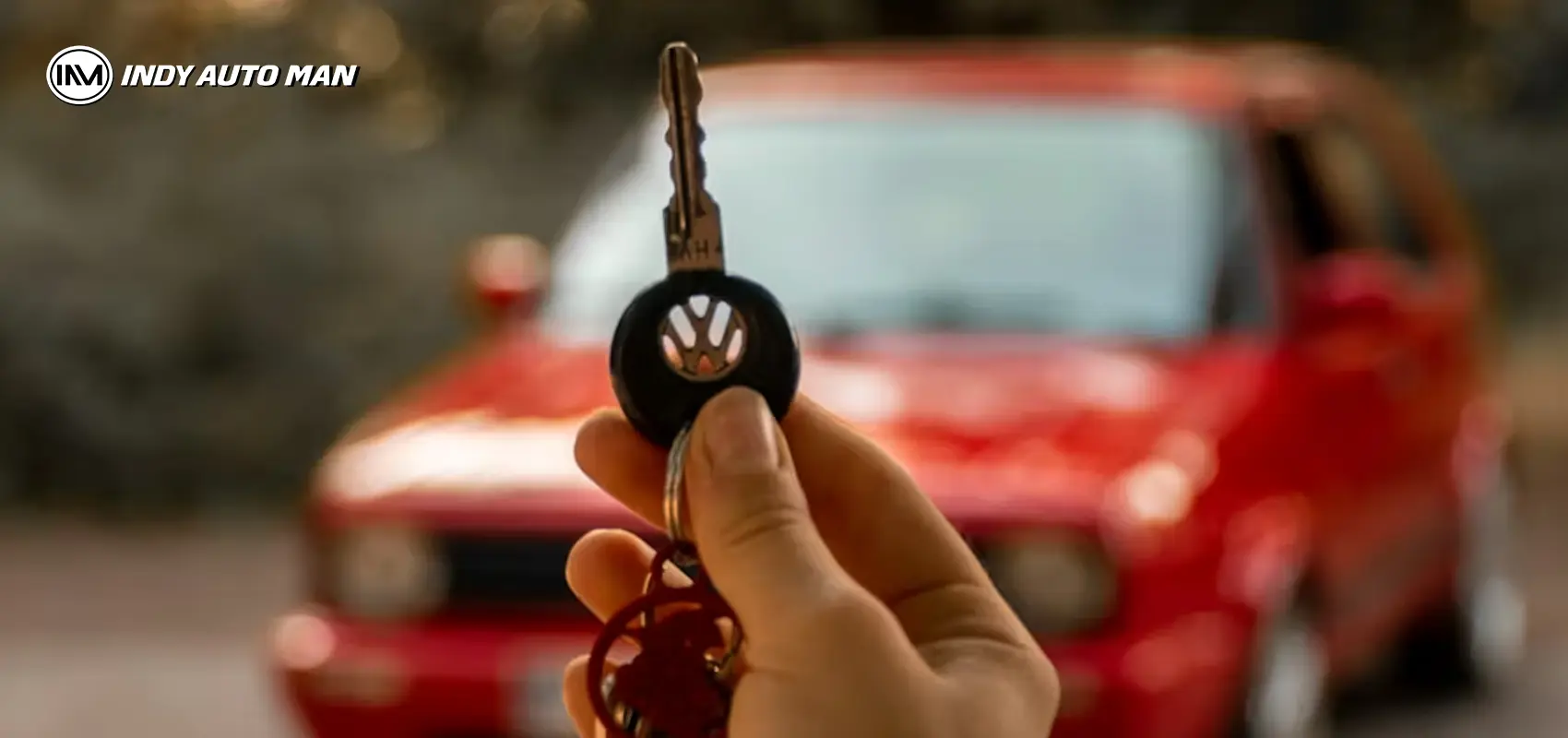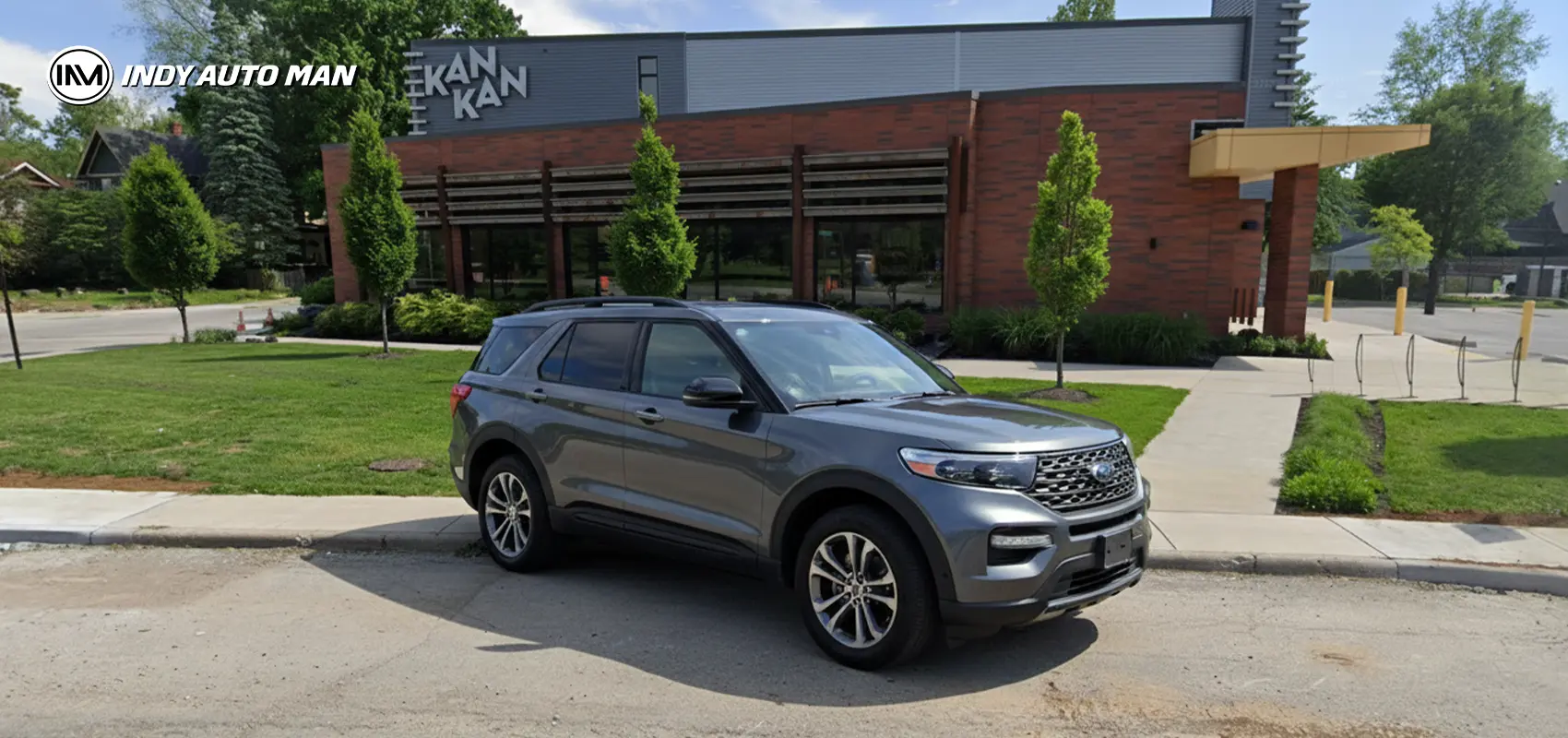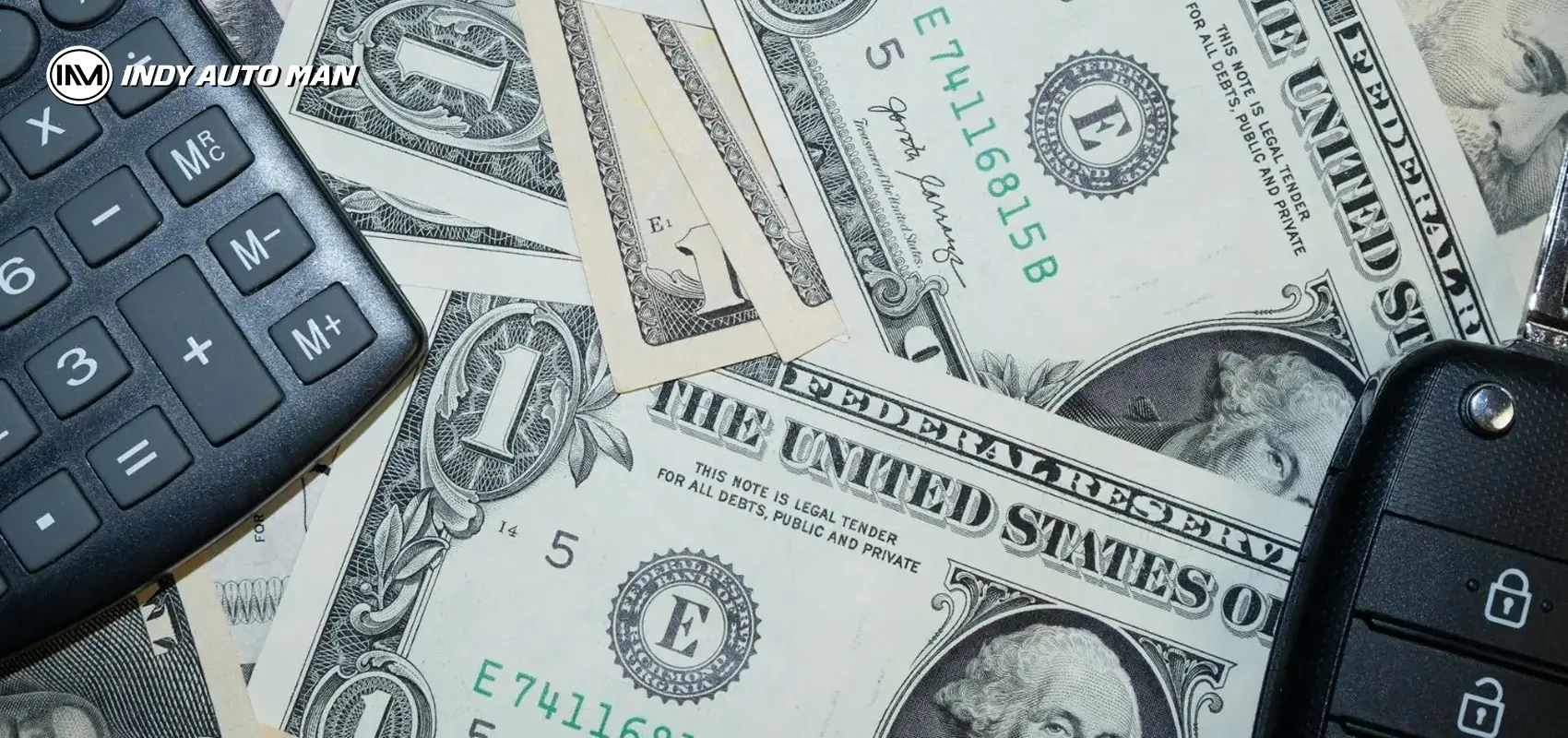Down Payment on a Car: How Much Should It Be in 2025?
Table of Contents
- What is a down payment?
- Is it possible to buy a car with no down payment?
- How much will I need to put down to secure a car loan?
- Can I use a credit card for a down payment?
- Why is a down payment important?
- What’s the difference between a down payment and a deposit?
- Key takeaways
- Finance a used car in Indiana with Indy Auto Man

Determining how much to put down on a car requires careful consideration. While a substantial down payment can be beneficial, it’s important not to let it strain your finances or deplete your emergency savings. Grab some tips on planning your car financing with Indy Auto Man, a dealership with wide lot of used cars in indiana for sale or start with our convenient auto loan calculator.
What is a down payment?
A down payment is the initial payment toward a home or car purchase when the buyer plans to finance the rest of the amount via a credit loan. The higher the down payment, the less the buyer will need to borrow to complete the transaction, and the lower the total interest charges.
The general rule is to make a down payment of at least 20% when purchasing a new car and 10% for a used one. A larger down payment can also improve your chances of securing a better interest rate. However, the ideal down payment amount isn’t a one-size-fits-all solution. If you’re unable to meet the 10% or 20% benchmarks, the best down payment is simply the one that fits your budget.
This is where the 20/4/10 rule comes into play. According to this guideline, you should try to put down at least 20%, opt for an auto loan with a term of four years or less, and ensure that your total auto-related expenses (including car payments, insurance, gas, etc.) do not exceed 10% of your overall monthly income.
Is it possible to buy a car with no down payment?

If you have an excellent credit score, you might be eligible for a no-money-down loan. However, these offers frequently carry higher interest rates, which can be considered predatory. Moreover, they are usually applicable to older vehicles, increasing the likelihood of being upside down on your car loan.
Even if your credit history isn't flawless, you may still have the opportunity to obtain a zero-down option. However, saving up for a down payment may be wiser.
How much will I need to put down to secure a car loan?
If you make a recommended down payment of at least 20 percent on a $20,000 vehicle, you will have to pay $4,000. This substantial down payment can improve your chances of approval and help you secure more favorable interest rates. Additionally, your monthly payments will be lower, and you'll end up paying less interest throughout the loan.
To increase your down payment, consider trading in your current vehicle to reach the recommended 20 percent. If that's not feasible, aim for a 10 percent down payment, which is generally acceptable to most lenders. Be sure to negotiate a fair purchase price and only commit to an amount you can comfortably afford.
Can I use a credit card for a down payment?
Some car dealerships in Indiana may permit you to use a credit card for your down payment. However, experts advise that you should only do this if you can pay off the card balance each month or have a 0% promotional interest rate, to avoid incurring high interest charges.
Why is a down payment important?

In addition to substantial cost savings and reduced monthly payments, here are several key reasons why making a down payment on a car purchase is crucial:
- Better loan terms: A larger down payment can secure favorable loan conditions, often resulting in a lower interest rate.
- Less monthly payments: The more you put down, the less you pay monthly.
- Enhanced equity: Making a down payment allows you to begin with equity in your car, which means you owe less than what it’s worth in the market. This provides a safety net, ensuring you won’t be upside down on your loan if you choose to sell or trade in the car shortly after purchasing it.
- More confidence: If you’re in an accident and your car is totaled, the insurance company’s payment — which is based on the cash value of the car — may not cover the full amount you still owe. (Gap insurance is intended to cover this risk.)
What’s the difference between a down payment and a deposit?
A deposit and a down payment are both upfront payments made when purchasing a vehicle, but they serve different purposes. A deposit is typically an amount you provide to the dealer to reserve a vehicle, demonstrating your intent to buy. In contrast, a down payment is a part of the total purchase price paid to the dealership when finalizing the sale. Finally, a deposit may contribute to a down payment for a car loan or to the total purchase price if buying outright.
Key takeaways
- Making a substantial down payment on a car can dramatically lower your monthly payments, improve your loan application’s success, and secure a more favorable interest rate.
- Ideally, aim for at least 10%, or an amount that satisfies your lender.
- A strong credit score can help you get a better interest rate, even without a down payment.
Finance a used car in Indiana with Indy Auto Man
While the average down payment for a car loan has increased compared to previous years, you still have options if you don’t have a lot of cash on hand. Visit the Indy Auto Man dealership in Indianapolis or browse our inventory of used cars for sale. Aim for a 10-20% down payment, and we will help you find the best financing deal or a lender open to accepting a smaller amount if you can’t meet that threshold.
